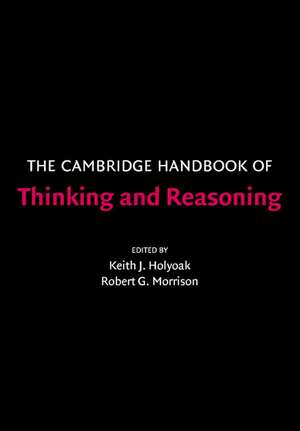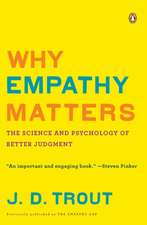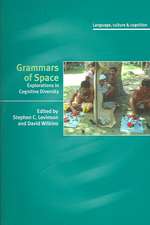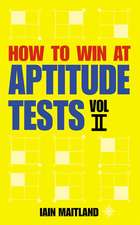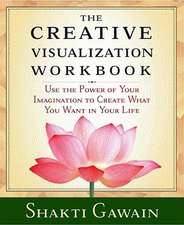The Cambridge Handbook of Thinking and Reasoning: Cambridge Handbooks in Psychology
Editat de Keith J. Holyoak, Robert G. Morrisonen Limba Engleză Paperback – 17 apr 2005
Din seria Cambridge Handbooks in Psychology
- 23%
 Preț: 1254.71 lei
Preț: 1254.71 lei - 11%
 Preț: 449.49 lei
Preț: 449.49 lei -
 Preț: 502.52 lei
Preț: 502.52 lei -
 Preț: 501.96 lei
Preț: 501.96 lei - 8%
 Preț: 426.60 lei
Preț: 426.60 lei -
 Preț: 486.56 lei
Preț: 486.56 lei - 5%
 Preț: 441.42 lei
Preț: 441.42 lei - 9%
 Preț: 1282.44 lei
Preț: 1282.44 lei -
 Preț: 494.25 lei
Preț: 494.25 lei - 8%
 Preț: 429.69 lei
Preț: 429.69 lei - 5%
 Preț: 397.85 lei
Preț: 397.85 lei - 23%
 Preț: 1246.12 lei
Preț: 1246.12 lei - 5%
 Preț: 439.60 lei
Preț: 439.60 lei - 19%
 Preț: 491.54 lei
Preț: 491.54 lei - 5%
 Preț: 718.49 lei
Preț: 718.49 lei -
 Preț: 511.59 lei
Preț: 511.59 lei - 8%
 Preț: 426.60 lei
Preț: 426.60 lei - 8%
 Preț: 427.05 lei
Preț: 427.05 lei - 8%
 Preț: 425.42 lei
Preț: 425.42 lei -
 Preț: 411.92 lei
Preț: 411.92 lei -
 Preț: 272.35 lei
Preț: 272.35 lei - 8%
 Preț: 425.42 lei
Preț: 425.42 lei - 9%
 Preț: 594.29 lei
Preț: 594.29 lei -
 Preț: 511.21 lei
Preț: 511.21 lei - 23%
 Preț: 1248.79 lei
Preț: 1248.79 lei -
 Preț: 370.88 lei
Preț: 370.88 lei - 8%
 Preț: 424.41 lei
Preț: 424.41 lei -
 Preț: 374.90 lei
Preț: 374.90 lei - 8%
 Preț: 427.49 lei
Preț: 427.49 lei -
 Preț: 511.59 lei
Preț: 511.59 lei - 5%
 Preț: 1538.86 lei
Preț: 1538.86 lei - 23%
 Preț: 2195.06 lei
Preț: 2195.06 lei - 23%
 Preț: 1168.35 lei
Preț: 1168.35 lei - 8%
 Preț: 428.36 lei
Preț: 428.36 lei -
 Preț: 488.47 lei
Preț: 488.47 lei - 8%
 Preț: 420.13 lei
Preț: 420.13 lei - 9%
 Preț: 850.12 lei
Preț: 850.12 lei - 8%
 Preț: 430.05 lei
Preț: 430.05 lei -
 Preț: 497.35 lei
Preț: 497.35 lei -
 Preț: 283.03 lei
Preț: 283.03 lei
Preț: 473.54 lei
Preț vechi: 532.07 lei
-11% Nou
Puncte Express: 710
Preț estimativ în valută:
90.61€ • 94.61$ • 74.82£
90.61€ • 94.61$ • 74.82£
Carte tipărită la comandă
Livrare economică 16-30 aprilie
Preluare comenzi: 021 569.72.76
Specificații
ISBN-13: 9780521531016
ISBN-10: 0521531012
Pagini: 874
Ilustrații: 82 b/w illus. 2 maps 18 tables
Dimensiuni: 180 x 252 x 40 mm
Greutate: 1.48 kg
Editura: Cambridge University Press
Colecția Cambridge University Press
Seria Cambridge Handbooks in Psychology
Locul publicării:New York, United States
ISBN-10: 0521531012
Pagini: 874
Ilustrații: 82 b/w illus. 2 maps 18 tables
Dimensiuni: 180 x 252 x 40 mm
Greutate: 1.48 kg
Editura: Cambridge University Press
Colecția Cambridge University Press
Seria Cambridge Handbooks in Psychology
Locul publicării:New York, United States
Cuprins
Preface; Part I. The Nature of Human Concepts: 1. Thinking and reasoning: a reader's guide Keith J. Holyoak and Robert G. Morrison; 2. Similarity Robert l. Goldstone and Ji Yun Son; 3. Concepts and categories: memory, meaning, and metaphysics Douglas L. Medin and Lance J. Rips; 4. Approaches to modeling human mental representations: what works, what doesn't and why Leonidas A. A. Doumas and John E. Hummel; Part II. Reasoning: 5. The problem of induction Steven A. Sloman and David A. Lagnado; 6. Analogy Keith J. Holyoak; 7. Causal learning Marc J. Buehner and Patricia W. Cheng; 8. Deductive reasoning Jonathan St. B. T. Evans; 9. Mental models and thought P. N. Johnson-Laird; 10. Visuospatial reasoning Barbara Tversky; Part III. Judgment and Decision Making: 11. Decision making Robyn A. LeBoeuf and Eldar Shafir; 12. A model of heuristic judgment Daniel Kahneman and Shane Frederick; 13. Motivated thinking Daniel C. Molden and E. Tory Higgins; Part IV. Problem Solving and Complex Learning: 14. Problem solving Laura R. Novick and Miriam Bassok; 15. Creativity Robert J. Sternberg, Todd I. Lubart, James C. Kaufman and Jean E. Pretz; 16. Complex declarative learning Michelene T. H. Chi and Stellan Ohlsson; 17. Thinking as a production system Marsha C. Lovett and John R. Anderson; 18. Implicit cognition and thought Leib Litman and Arthur S. Reber; Part V. Cognitive and Neural Constraints on Human Thought: 19. Thinking in working memory Robert G. Morrison; 20. Cognitive neuroscience of deductive reasoning Vinod Goel; 21. Cognitive and neuroscience aspects of thought disorder Peter Bachman and Tyrone D. Cannon; Part VI. Ontogeny, Phylogeny, Language, and Culture: 22. Development of thinking Graeme S. Halford; 23. Mathematical thinking Randy Gallistel and Rochel Gelman; 24. Effects of aging on reasoning Timothy A. Salthouse; 25. Reasoning and thinking in nonhuman primates Josep Call and Michael Tomasello; 26. Language and thought Lila Gleitman and Anna Papafragou; 27. Paradigms of cultural thought Patricia M. Greenfield; Part VII. Thinking in Practice: 28. Legal reasoning Phoebe C. Ellsworth; 29. Scientific thinking and reasoning Kevin Dunbar and Jonathan Fugelsang; 30. Reasoning in medicine Vimla L. Patel, Jose F. Arocha and Jiajie Zhang; 31. Intelligence Robert J. Sternberg; 32. Learning to think: the challenges of teaching thinking Ron Ritchhart and David N. Perkins.
Recenzii
"The editors have done a wonderful job of organizing the chapters within seven topic areas and have even included a list of suggested chapters should the handbook be used as a textbook. The intended readers are experts in the field, academics, and graduate and undergraduate students. Highly recommended."
--Library Journal
"The Cambridge Handbook of Thinking and Reasoning is a well-written and structured book that provides thorough reviews in all the main thinking and reasoning-related areas of research. The reviews not only summarize what is known on a given topic but also describe potential areas for future research. In addition, the chapters are of average length and are very well-referenced. The result is a handbook that can be used in a variety of ways for instruction at the graduate and undergraduate levels and that provides an excellent resource for researchers."
--Contemporary Psychology: APA Review of Books
--Library Journal
"The Cambridge Handbook of Thinking and Reasoning is a well-written and structured book that provides thorough reviews in all the main thinking and reasoning-related areas of research. The reviews not only summarize what is known on a given topic but also describe potential areas for future research. In addition, the chapters are of average length and are very well-referenced. The result is a handbook that can be used in a variety of ways for instruction at the graduate and undergraduate levels and that provides an excellent resource for researchers."
--Contemporary Psychology: APA Review of Books
Descriere
This 2005 book is a comprehensive handbook of the core topics of the fields of thinking and reasoning.
